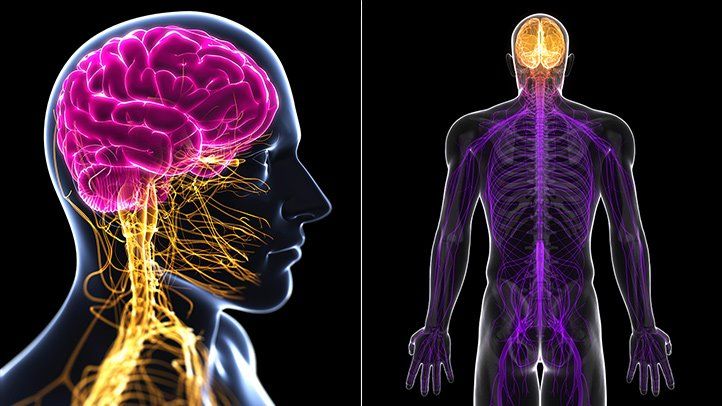
Neuropathic pain
The term “neuropathic pain” is often described as a burning or shooting sensation throughout the body. Although it can be resolved spontaneously but it’s usually persistent. A dysfunctional or injured nervous system are the most common causes. Damage to the nerves affects function at the point of the injury and within the tissues surrounding it.
Phantom limb syndrome can be just one type of neuropathic pain which may occur. If an arm or leg is taken off due to injury or illness The brain continues to receive signals of pain from nerves that transmit impulses from the lost leg. These nerves are no longer correctly activated, causing discomfort.
The Development of Neuropathic Pain
In a majority of instances following trauma or injury the nerves are damaged or damaged, causing an increased sensitivity to pain. The nerves are then able to send ineffective pain signals, even after the injury heals. In the central or peripheral nerve system, a first injury may be present.
The pain of Neuropathic is a long-lasting condition, or neuropathy that means it won’t go away. disappear. Instead, it is a process of getting sick. The peripheral nerve and the peripheral neuritis can be used to describe the peripheral neuropathy of nerves.
The estimated range is between 8 and 10 percent of patients suffer with nerve pain. This article examines the relationship between the relationship between chronic back pain and neuropathy and the connection between these two diseases. The authors also suggest it is possible that Gabapin 300 mg – (https://safegenericstore.com/gabapin-300/) and other medicines can assist in relieving this pain.
Neuropathic Back Pain
It’s not surprising that numerous forms of back pain chronically due to some type of neuropathic pain due to the structure there is no spinal cord. When pain is portrayed by the nerves of the brain due to damaged tissue the neuropathic pain can be caused via trauma, compression or loss of blood circulation or infected tissue or other causes. Hernia discs with bulges is the most typical reason for neuropathic back pain.
The nerves of the spinal cord as well as its numerous nerve roots are located throughout the spine, and connect to the nerve system of peripheral origin of the body, it’s simple to push one of the nerve roots through discs that have swelled or become damaged that causes pain, weakness vibrations and various signs across the body.
The most frequent is sciatica where discs bulge and press against and irritate the nerves that are part of the sciatic nerve that runs through the bottom back. This causes soreness which extends down the buttocks and the thigh. The cause of back pain caused by nerve compressions isn’t always swelling or discs degenerating. Tensed muscles, inflammation caused by illness or injury and cancer are among the reasons. The nerve compressions may develop all throughout the entire spinal cord.
Spinal stenosis, which refers to an increase in the spinal space, can result in a range of symptoms like diminished power and control and severe pain in multiple places in the back. The direct nerve or the surrounding tissue damage can cause nerve pain that is caused by scarring. Another main cause of back neuropathic pain is the process of demyelination.
Neuropathy causes back pain.
Neuropathy can cause any type of pain that interferes with the nerve. For instance, a herniated disc may push against a nearby nerve and cause discomfort. It’s not going to be difficult to manage back pain while working, the majority of patients are prescribed the Gabapin 300 mg to ease the pain caused by neuropathic. Back pain caused by neuropathic conditions or back pain could be caused by:
Chronic pain that radiates to the leg (lumbar sciatica, radiculopathy or sciatica)
Chronic pain that radiates upwards of to the shoulder (cervical radiculopathy)
Back pain that starts slowly and continues to persist is typically called the syndrome of failed back surgery.
Regional pain syndrome (RPS) and diabetes are among the leading cause of nerve pain. Other causes include injuries and illness exposure to toxins and drug abuse. The root of the problem isn’t always determined.
Neuropathy could cause difficulties in carrying everyday tasks.
The majority of people with neuropathic pain find moving uncomfortable and decreases mobility. It is possible that inactivity causes muscles to degrade which will limit their functional capabilities. A lot of people with neuropathy are unable to be productive.
Neuropathic back pain, or any other pain is typically described as:
Electricity or lightning or even stubbornness
Hot, deep or cold
A persistent feeling of confusion or tingling or the feeling of weakness
It can be a path to the hands, arms and legs.
The skin can be stained in the area of sores and look rosier red than normal. In some instances, it can appear more blue or speckled. The changes in color are often related to changes in blood flow. Certain people also experience becoming swollen.
A lot of people suffering from neuropathy also suffer from issues with sleep and depression which can increase the perception of pain. The holistic method of treating pain will address all aspects of one’s health.
Strange neuropathic symptoms
It is possible to detect pain in a variety of ways, for example:
A hypersensitivity to light that ordinary people are unable to perceive it, is known as allodynia. For instance, the sensation of clothing against skin can trigger a reaction.
Hyperalgesia refers to feeling of sensitivity that can be slightly painful for others.
Hypoesthesia is a remarkably uncomfortable sensation that is caused by hot or cold.
A jolt of electricity or a pin-and-needle experience, also referred to as paranesthesia, occurs when there isn’t any contact.
Tests of the senses can be carried out to observe how a responds to different types or physical touch.
The treatment for pain that is neuropathic
To determine the root of the issue or exclude possible causes Electromyography and nerve conduction studies such as blood tests, and diagnostic tests such as MRI are a possibility. Test results can help determine the most effective treatment.
Some cases are less difficult than others. When a nerve is damaged by a herniated disc for instance, decompression may reduce pain by releasing the pressure on the nerve.
If there isn’t an underlying reason for pain, the treatment is usually focused on relief from pain. There isn’t one specific remedy to treat neuropathic pain However, a mixture of treatments and medications can prove beneficial. Care for those who suffer from neuropathy may be suggested for taking Gabapin 300 that relieves the pain of nerves.
The most important thing is the bottom line
There are many reasons that could trigger back pain, and neuropathic pain is one of the most common. If your situation gets worse, you must do something to alleviate the discomfort.







